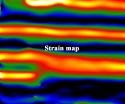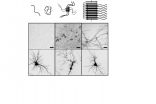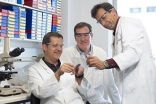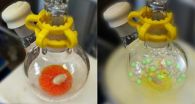Stressed out: Research sheds new light on why rechargeable batteries fail
2014-10-01
(Press-News.org) Pity the poor lithium ion. Drawn relentlessly by its electrical charge, it surges from anode to cathode and back again, shouldering its way through an elaborate molecular obstacle course. This journey is essential to powering everything from cell phones to cordless power tools. Yet, no one really understands what goes on at the atomic scale as lithium ion batteries are used and recharged, over and over again.
Michigan Technological University researcher Reza Shahbazian-Yassar has made it his business to better map the ion's long, strange trip—and perhaps make it smoother and easier. His ultimate aim: to make better batteries, with more power and a longer life.
Using transmission electron microscopy, Anmin Nie, a senior postdoctoral researcher in Shahbazian-Yassar's research group, has recently documented what can happen to anodes as lithium ions work their way into them, and it's not especially good. The research was recently published in the journal Nano Letters.
"We call it atomic shuffling," says Shahbazian-Yassar, the Richard and Elizabeth Henes Associate Professor in Nanotechnology. "The layered structure of the electrode changes as the lithium goes inside, creating a sandwich structure: there is lots of localized expansion and contraction in the electrode crystals, which helps the lithium blaze a trail through the electrode."
The atomic shuffling not only helps explain how lithium ions move through the anode, in this case a promising new material called zinc antimonide. It also provides a clue as to why most anodes made of layered materials eventually fail. "We showed that the ions cause a lot of local stress and phase transitions," Anmin said.
INFORMATION:
The paper, "Lithiation-Induced Shuffling of Atomic Stacks," is coauthored by Shahbazian-Yassar, postdoctoral research fellow Anmin Nie and graduate student Hasti Asayesh-Ardakani of Michigan Tech's Department of Mechanical Engineering-Engineering Mechanics; Yingchun Cheng, Yun Han and Udo Schwingenschlogl of King Abdulla University of Science and Technology, in Saudi Arabia; Runzhe Tao, Farzad Mashayet and Robert Klie of the University if Illinois at Chicago; and Sreeram Vaddiraju of Texas A&M University.
The microscopy was conducted at the University of Illinois at Chicago.
[Attachments] See images for this press release:

ELSE PRESS RELEASES FROM THIS DATE:
2014-10-01
People who are unable to button up their jacket or who find it difficult to insert a key in lock suffer from a condition known as apraxia. This means that their motor skills have been impaired – as a result of a stroke, for instance. Scientists in Munich have now examined the parts of the brain that are responsible for planning and executing complex actions. They discovered that there is a specific network in the brain for using tools. Their findings have been published in the Journal of Neuroscience.
Researchers from Technische Universität München (TUM) and the Klinikum ...
2014-10-01
Researchers have discovered a new type of brain activity that underlies the timing of voluntary actions, allowing them to forecast when a spontaneous decision will occur more than a second in advance. 'Experiments like this have been used to argue that free will is an illusion, but we think that this interpretation is mistaken,' says Zachary Mainen, a neuroscientist at the Champalimaud Centre for the Unknown, in Lisbon, Portugal, who led the research, published on Sept. 28, 2014, in the journal Nature Neuroscience.
The scientists used recordings of neurons in an area ...
2014-10-01
The peptide —a small protein— beta-amyloid is strongly associated with Alzheimer's disease; however, researchers are still looking for unequivocal proof that this peptide is the causal agent of the onset and development of the disease. The main obstacle impeding such confirmation is that beta-amyloid is not harmful when found in isolation but only when it aggregates, that is when it self-assembles to form the so-called amyloid fibrils
"We are not dealing with a single target, beta-amyloid alone, but with multiple ones because each aggregate of peptide, which can go from ...
2014-10-01
Current changes in the ocean around Antarctica are disturbingly close to conditions 14,000 years ago that new research shows may have led to the rapid melting of Antarctic ice and an abrupt 3-4 metre rise in global sea level.
The research published in Nature Communications found that in the past, when ocean temperatures around Antarctica became more layered - with a warm layer of water below a cold surface layer - ice sheets and glaciers melted much faster than when the cool and warm layers mixed more easily.
This defined layering of temperatures is exactly what is ...
2014-10-01
An international team of scientists has shown that more than 80 per cent of bowel cancers could be treated with existing drugs.
The study found that medicines called 'JAK inhibitors' halted tumour growth in bowel cancers with a genetic mutation that is present in more than 80 per cent of bowel cancers. Multiple JAK inhibitors are currently used, or are in clinical trials, for diseases including rheumatoid arthritis, psoriasis, blood cancers and myeloproliferative disorders.
Bowel cancer is the second-most common cancer in Australia with nearly 17,000 people diagnosed ...
2014-10-01
DURHAM, N.C. -- A Duke University team has found that nanoparticles called single-walled carbon nanotubes accumulate quickly in the bottom sediments of an experimental wetland setting, an action they say could indirectly damage the aquatic food chain.
The results indicate little risk to humans ingesting the particles through drinking water, say scientists at Duke's Center for the Environmental Implications of Nanotechnology (CEINT). But the researchers warn that, based on their previous research, the tendency for the nanotubes to accumulate in sediment could indirectly ...
2014-10-01
Computer modelling of the human eye, the brain of a rat and a robot could revolutionise advances in neuroscience and new technology, says a QUT leading robotics researcher.
Dr Michael Milford from QUT's Science and Engineering Faculty says the new study uses new computer algorithms to enable robots to navigate intelligently, unrestricted by high-density buildings or tunnels.
"This is a very Frankenstein type of project," Dr Milford said.
"It's putting two halves of a thing together because we're taking the eyes of a human and linking them up with the brain of a rat.
"A ...
2014-10-01
An international group of researchers led by Dr. Warren E. Piers (University of Calgary) and Dr. Heikki M. Tuononen (University of Jyväskylä) has been able to isolate and characterize an important chemical intermediate whose existence has, so far, only been inferred from indirect experimental evidence.
Chemical reactions rarely go from starting materials to final products in one single step, but instead they progress through a number of intermediates. In many cases the intermediates are not stable enough to be studied by conventional characterization methods, which thwarts ...
2014-10-01
Philadelphia, PA, October 1, 2014 – Patients with increased inflammation, including those receiving cytokines for medical treatment, have a greatly increased risk of depression. For example, a 6-month treatment course of interferon-alpha therapy for chronic hepatitis C virus infection causes depression in approximately 30% of patients.
Omega-3 fatty acids, more commonly known as fish oil, have a long list of health benefits, including lowering the risk of heart disease and reducing triglyceride levels. These nutritional compounds are also known to have anti-depressant ...
2014-10-01
When appointing a new leader, selectors base their choice on several factors and typically look for leaders with desirable characteristics such as honesty and trustworthiness. However once leaders are in power, can we trust them to exercise it in a prosocial manner?
New research published in The Leadership Quarterly looked to discover whether power corrupts leaders. Study author John Antonakis and his colleagues from the University of Lausanne explain, "We looked to examine what Lord Acton said over 100 years ago, that 'Power corrupts and absolute power corrupts absolutely.'"
To ...
LAST 30 PRESS RELEASES:
[Press-News.org] Stressed out: Research sheds new light on why rechargeable batteries fail





